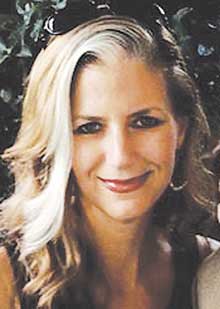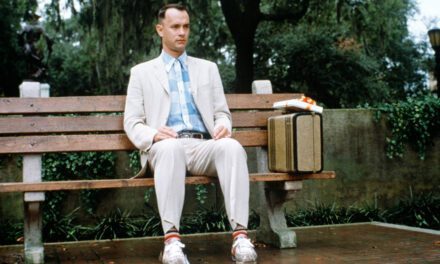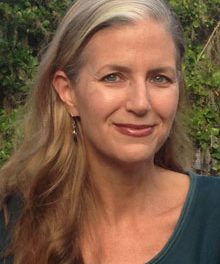 By Margaret Evans, Editor
By Margaret Evans, Editor
It’s finally happened, y’all. I am at a loss for words. After nearly two decades of column writing, I’ve been struck dumb. (Don’t go there.)
It’s not that there’s nothing to say. There is plenty. It’s just that there’s no point in saying any of it. Not right now. Maybe never.
But here I go anyway. (How’s that for a bait and switch?)
The cat that got my tongue was not the election of Donald J. Trump. I suspected that was coming, so I’m not in shock or traumatized or reeling or wallowing in deep depression. (Did I touch on your particular malady?) I’d known for a while there was a YUGE “secret Trump vote” out there. Not only was my gut telling me that . . . but Trump voters were, too. In secret. (People confess things to me. I guess I have a priestly quality. Heh.)
The reason I’m at a loss for words, I think, is that words are currently . . . losing. Not working. Why flap your gums if nobody can hear you? (If a tree falls in the woods . . .) Why spend time and energy at the keyboard, straining the borders of your brain and mining the depths of your heart . . . if there’s nobody on the other end who can translate your words, or receive them with the spirit in which they were offered?
Oh, there’s always somebody who can, of course – somebody who hears and understands and agrees – and that’s gratifying. Very self-affirming. But preaching to the choir – telling you what you already believe (that you’re right and that other choir is wrong) – has never been my passion. What I love – what I live for – is communicating.
But I sat at my computer last week, hour after hour, day after day, reading articles, blogs, a thousand Facebook posts. And what I learned is that communication – that beautiful back and forth, when we talk and listen, teach and learn, engage with each other and even change each other – is almost impossible right now.
Americans have stopped speaking the same language. It’s as if we hail from completely different countries. Not geographical countries, but countries of the soul. The election of Trump has unleashed a snake’s nest of ill will that seems, in my estimation, born of misunderstanding. Hillary supporters are misunderstanding the majority of Trump voters – their motives and concerns – while Trump voters fail to fathom the depths of grief in which Hillary supporters currently reside. The assumptions we make about each other – the atrocious opinions and prejudices and hatreds we’re currently assigning to each other – seem false (to me) and a great missing of the mark, and yet it’s clear that those assigning them are sincere.
(Now is the time I should probably come clean if you are to trust me. I believe fervently in the sacredness of the secret ballot – for reasons easy to discern in this age of media-fueled misconception – but I should tell you that I voted for the Libertarian ticket. In a state firmly entrenched with Trump, where my vote mattered only to me, I indulged the luxury of voting for the candidate I most admired. And in the interest of full disclosure – that candidate was Bill Weld. He and Gary Johnson had pledged to serve as “co-presidents” and I truly believed – still do – that they would govern not as “Libertarians,” but as sensible moderates. I fantasized that they might even work toward healing this deep, dark laceration that divides us. That’s where I was coming from. So now you know.)
Anyway. While watching my dear friends rip my other dear friends to bloody bits on social media last week, I began pondering – for the gazillionth time – why it is we so thoroughly fail to understand each other. And I remembered an op-ed a friend sent me on the morning of the election, before everything went to hell.
It was written by the novelist Barbara Kingsolver, whose book The Poisonwood Bible has been seared on my heart for years. Her op-ed was entitled, “End this Misogynistic Horror Show: Put Hillary Clinton in the White House.” It started like this: “When I was a girl of 11 I had an argument with my father that left my psyche maimed. It was about whether a woman could be the president of the US.”
Kingsolver then recounts this conversation with her dad – a well-respected country doctor whom she looked up to and adored.
“I probably started by asking him if girls could go to college, have jobs, be doctors, tentatively working my way up the ladder. His answers grew more equivocal until finally we faced off, Dad saying, ‘No’ and me saying, ‘But why not?’A female president would be dangerous. His reasons vaguely referenced menstruation and emotional instability, innate female attraction to maternity and aversion to power, and a general implied ickyness that was beneath polite conversation.
“I ended that evening curled in bed with my fingernails digging into my palms and a silent howl tearing through me that lasted hours and left me numb. The next day I saw life at a remove, as if my skull had been jarred. What changed for me was not a dashing of specific hopes, but an understanding of what my father – the person whose respect I craved – really saw when he looked at me. I was tainted. I would grow up to be a lesser person, confined to an obliquely shameful life.”
Kingsolver (age 61) says her life since then has been a quest to discover what a woman “gets to do” – “a lifelong confrontation with that internal howl” – with many “unexpected slap-downs” along the way. It’s clear that the “misogynistic horror show” in her title refers not only to the Trump campaign but – in many ways – to life in these United States. The candidacy of Hillary Clinton was, for Barbara Kingsolver, extremely high stakes in a very personal sense. Hillary’s election would have been the ultimate balm for that psychic wound she received when she was 11. The conversation that changed everything.
I was so moved by this piece. (That Barbara Kingsolver – she can really write!) But it also set my mind to spinning. And I realized that my experience of womanhood and her experience of womanhood have been completely different. Kingsolver is a decade older than me, which may explain part of that. But I think the heart of the reason is much more specific and personal and… well, even simple. And it is this: I never had a conversation like that with my father.
I’m not saying my dad is some great feminist. He’s not. He’s a 77-year-old lawyer who loves Alabama football, David Baldacci novels, working in his garden, and show tunes. Throughout my childhood, he was a gentle, congenial presence who only lost his temper occasionally (in a house where he was outnumbered by women, five to one!), a good provider, a source of security, and a steady rock. But he was not political. Neither was I. And the simple truth is this: I never asked my dad that question – “What can a woman do?” – so he never answered it.
And I was free to believe I could do anything. My dad never told me otherwise – in my heart of hearts, I don’t believe he thought otherwise, and he’s always supported me in any endeavor – so I’ve always done exactly what I wanted. To be fair, I have never aspired to the kind of life where “the glass ceiling” is a big issue. As a writer and small business owner, I create my own ceiling. It can go as high as I build it. I have a husband who respects me – and is also my business partner – and sexism has not played a significant role in shaping how I feel, what I think, what I do, or who I am.
But thanks to Barbara Kingsolver’s op-ed, I now have a much better understanding of the myriad women for whom this election was so much more than just an election. I feel their grief and heartbreak more acutely than I might, and I’m better able to absorb and forgive their lashing out.
This is but one example of what good writing can do. But in order for good writing to work its magic, we must be good readers. We must lay our hearts and minds wide open and imagine ourselves into the lives of others. Fully, deeply, and graciously.
Until more people are willing to do that – to suspend their anger and fear and hurt feelings and imagine themselves into the lives of others – I’m just wasting words on this page. Communication has to go both ways.
Did you know “communication” has a second definition? It means, “to receive holy communion.” Indeed, there’s something holy – something sacred – about true communication. May we all find our way to the table.
Margaret Evans is the editor of Lowcountry Weekly. (Read more of her Rants & Raves here here or visit her blog at www.memargaret.com)







